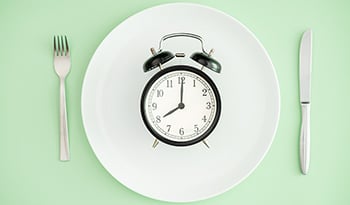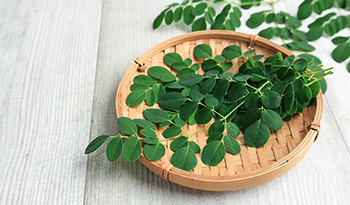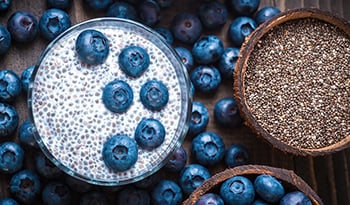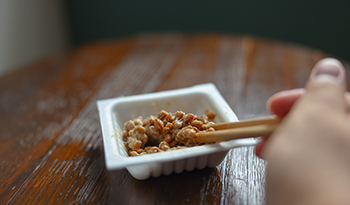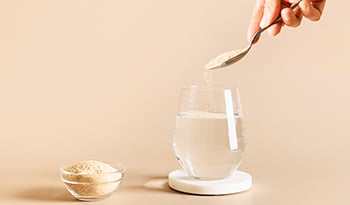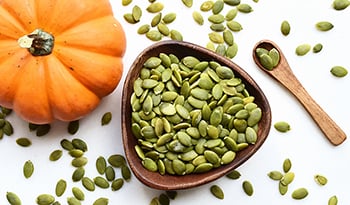Fuel Your Morning With a Matcha Latte

By Alysa Bajenaru, RD
The first time I tried what is now the incredibly popular drink known as matcha, I was sitting on a tatami mat in Japan, experiencing a traditional tea ceremony. Concentrated green powder and hot water was whisked perfectly into a frothy tea right in front of my eyes. Turning the bowl in my hands three times, I was instructed to take a sip. The tea had an earthy taste, nothing like I had ever experienced before.
Now, more than 20 years later, that same green powder from Japan is popping up everywhere. But what is matcha exactly, and why is everyone swapping out their morning coffee for a matcha latte?
What is Matcha?
Matcha comes from the same plant as your typical green tea, but is grown and cultivated in a different way, resulting in much higher nutrient concentration. 20-30 days before harvest, matcha tea plants are covered to avoid direct sunlight. This helps the plants make more chlorophyll and increases amino acid content.
When the tea leaves are harvested, they are ground up into a fine powder, so when you’re consuming matcha, you are ingesting the entire tea leaf (as opposed to drinking green tea, which is an infusion of whole tea leaves in water).
What Are the Health Benefits of Matcha?
Some health benefits of matcha may include:
- Protection from free radicals: Because of the high concentration of antioxidants, matcha can help counteract free radical damage in the body, possibly lowering the risk of certain infections.
- Improved brain function: The combination of the amino acid L-theanine and caffeine may help decrease stress and increase concentration. Matcha has also been shown to improve attention, memory and reaction time.
- Lower cholesterol: Some studies have shown that the high concentration of catechins in matcha may lower total and LDL (bad) cholesterol levels.
- Liver protection: Studies have also shown that matcha could prevent liver damage and decrease the risk of liver disease.
How Is Matcha Consumed?
The great news is, there are several easy ways to include matcha in your diet. You can make matcha tea or lattes, throw matcha powder into your protein shakes, or if you aren’t a fan of the taste, you can take it in supplement form.
Matcha Tips and Recipes
Always store matcha powder in a cool, dry pantry or the refrigerator.
Make traditional matcha tea by sifting 1-2 teaspoons of matcha powder into a cup, add 2 ounces of hot water, and mix it together with a whisk. You can play around with the consistency by using different amounts of powder and water.
Dairy-Free Matcha Latte
Ingredients:
- 1/2 cup hot water
- 1/2 cup coconut milk (hot)
- 1 teaspoon matcha powder
- 1 tablespoon honey
Instructions:
- Add 1 teaspoon matcha powder and a small amount of hot water to a mug or small bowl.
- Using a whisk, briskly make a green paste.
- Add the rest of the water, coconut milk and honey.
- Whisk until combined. (Optional: use a milk frother for extra foam.)
DISCLAIMER:This Wellness Hub does not intend to provide diagnosis...


















































































